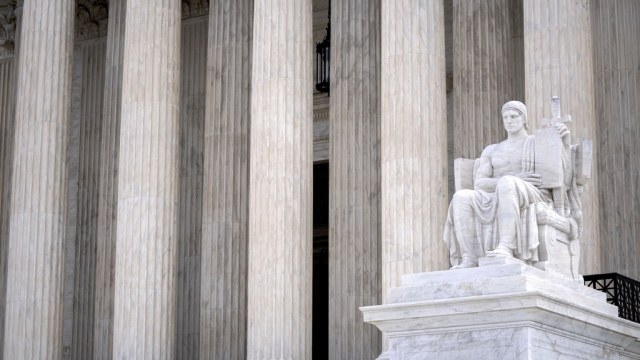The Supreme Court heard on Monday two cases that involve how the First Amendment protecting free speech applies to social media sites. The court’s decision could fundamentally change how the internet operates.
The case stems from state laws passed in Florida and Texas intended to protect conservative viewpoints.
In 2021, the GOP legislation came after Facebook and Twitter (now known as X) banned former President Donald Trump for his posts about the Jan. 6 Capitol attack and tried to slow misinformation about the 2020 election and the COVID-19 pandemic.
Trade associations representing the social platform then sued, arguing the laws violated the platforms’ speech rights. As they say, they are like news organizations that can decide what content to allow on their platforms without government oversight.
Both laws aimed to address conservative complaints that the social media companies were liberal-leaning and censored users based on their viewpoints, especially on the political right. The cases are among several the justices have grappled with over the past year involving social media platforms.
SEE MORE: Poll: Most Americans favor restrictions on certain online content
The Florida law (SB7072) bars the permanent removal of political candidates from social media, while the Texas law (HB 20) bars social platforms from banning content based on any user's viewpoint.
During the hearing justices raised concerns about how sweeping the measures’ impact could be.
"This is so, so broad. It’s covering almost everything. But the one thing I know about the internet is that its variety is infinite," said Justice Sonia Sotomayor.
Justices also asked whether such regulations would affect privately owned marketplace sites like Etsy, Uber or Venmo. Other questions focused on censorship versus editorial discretion.
A lawyer for the Electronic Freedom Foundation expressed deep skepticism of state governments regulating how a company moderates its content.
"These laws represent profound intrusions into social media sites' ability to decide for themselves... When platforms have First Amendment rights to curate the user-generated content they publish, they can create distinct forums that accommodate diverse viewpoints, interests, and beliefs,” EFF Senior Staff Attorney and Civil Liberties Director David Greene told Scripps News.
Underscoring the complexity of the issue, several privacy advocacy groups want the justices to protect the government’s ability to regulate social media companies to some extent. The court is expected to decide these challenges by June.
Trending stories at Scrippsnews.com



